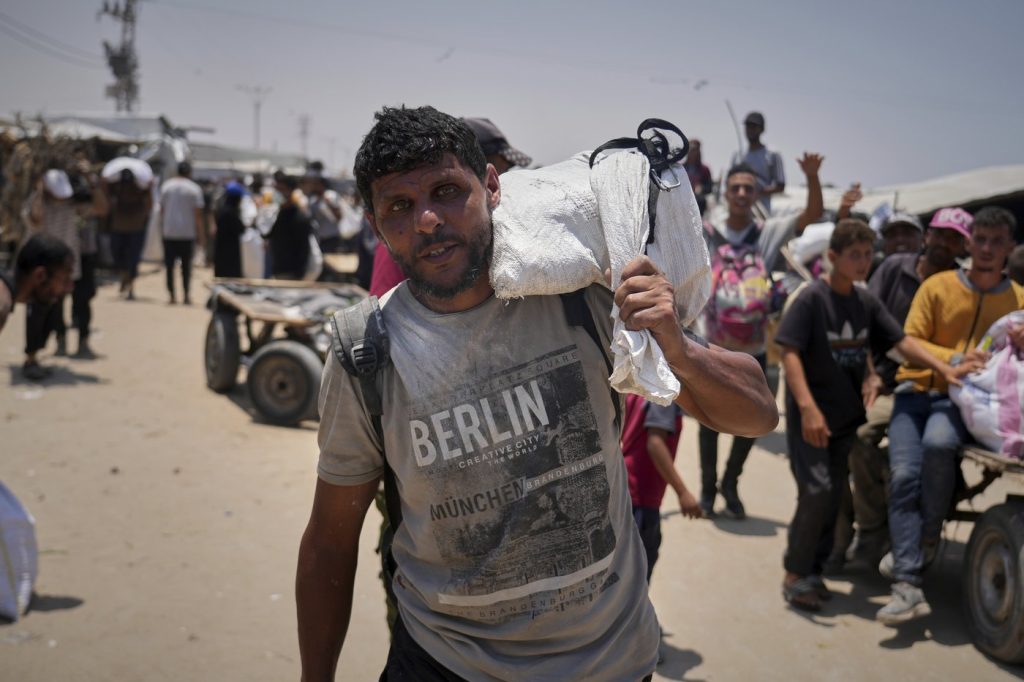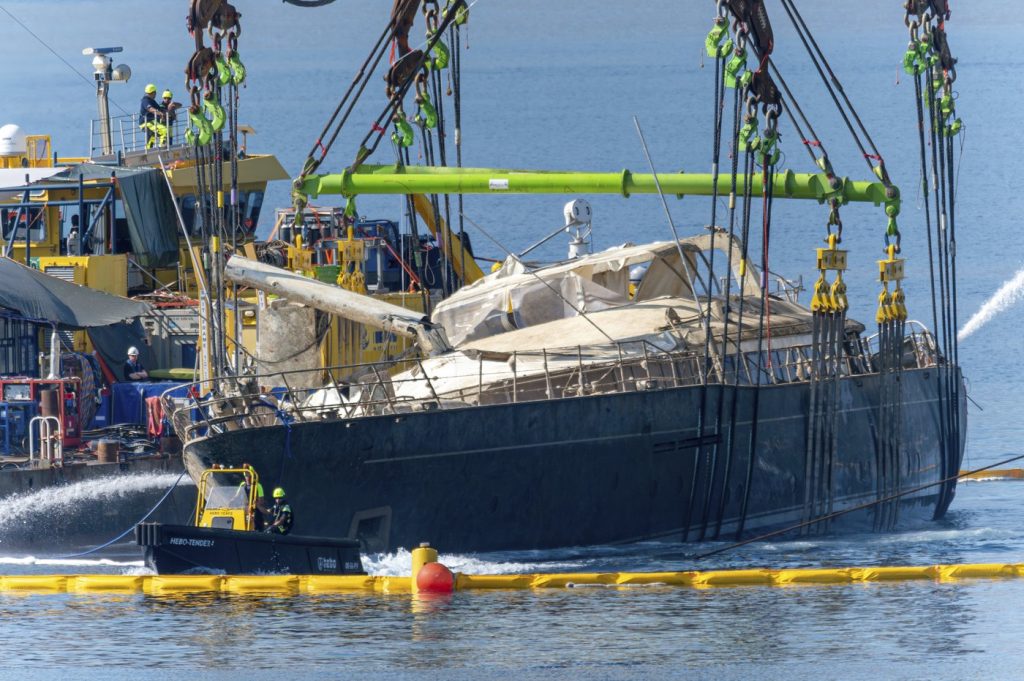KHAN YOUNIS, Gaza Strip (AP) — Each day, Palestinians in Gaza navigate a perilous environment in their quest for food. Israeli troops are reported to open barrages of gunfire targeting crowds that attempt to cross military zones to reach food aid, while knife-wielding thieves lie in wait to ambush those who manage to get through. Amidst the ongoing crisis, many Palestinians are experiencing escalating lawlessness as they compete for limited resources to feed their families.
A fortunate few may secure small supplies—such as lentils, Nutella, or flour—while many return empty-handed, forced to endure the ordeal once more the following day. Jamil Atili, who attempted to gather food last week, expressed his devastation, stating, “This isn’t aid. It’s humiliation. It’s death.” Despite suffering a knife wound and being pepper-sprayed by a security guard during the chaos, he returned without provisions for his family of 13, lamenting, “I have nothing to feed my children. My heart is broken.”
After a ten-week blockade, Israel recently began allowing food into Gaza; however, United Nations officials contend that the supplies are insufficient to prevent starvation. Most aid is allocated to the Gaza Humanitarian Foundation (GHF), an Israeli-backed private contractor operating four food distribution points within Israeli military zones, while a trickle of aid reaches UN and humanitarian organizations.
Both distribution systems are plagued by chaos and violence. The Gaza Health Ministry reports that daily gunfire from Israeli troops has resulted in hundreds of deaths and injuries among the crowds. In addition, overwhelming demand often leads to desperate situations where hungry individuals strip UN truck convoys of supplies. Witnesses recount instances of live fire being used to disperse crowds awaiting humanitarian assistance, with more than 50 fatalities reported on one day alone.
In response to inquiries about controlling movement near the centers, the Israeli military stated that it employs a systematic learning process in its operational conduct, while GHF claims no shootings occurred at or near its hubs. Instead, GHF contends that violence primarily arises involving individuals who attempt to access aid outside designated times. Israel's intention is for GHF to replace the UN-led aid network, alleging that Hamas diverts significant amounts of relief supplies.
Many individuals must travel miles to reach the GHF centers, which are located in the far south near Rafah. Mohammed Saqer, a father of three, described the danger faced by crowds entering the military zone, stating, “It’s like it was ‘Squid Game,’” referencing the deadly competition depicted in the dystopian television series. As he and others navigated under heavy military fire, they witnessed the aftermath of shootings, highlighting the risks they endure in their quest for sustenance.
The food distribution centers themselves present another hazardous environment. Upon arrival, thousands rush to grab available food items, creating a frenzied atmosphere. Saqer noted that once supplies are depleted, those arriving too late may resort to theft from those who have collected provisions. He recounted grabbing boxes filled with valuable food items before making a hasty escape over barriers to avoid potential gunfire.
Al-Hobi, another individual struggling to feed his family, reported being trampled in the chaos and enduring near-fatal encounters. Despite obtaining some food, he remains shaken by the surroundings and the brutal competitiveness that the scarcity of food has engendered. Both he and his wife, Anwaar Saleh, find themselves focused on rationing their limited supplies to stretch them over time, all while fearing the risks involved in future trips for food. Al-Hobi's experiences encapsulate the desperate lengths to which individuals must go in a now harshly competitive environment where survival takes precedence over compassion.












